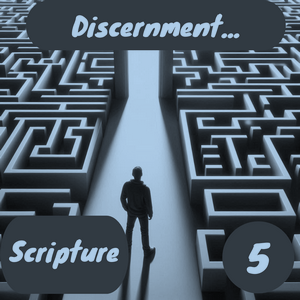Craig
I think looking at the ways Jesus used scripture has really helped us understand issues of context, culture and intent. We all know how easy it is to make scripture say what we want it to, and how easy it is to take any text out of its context. I think of Humpty Dumpty in Alice in Wonderland proudly declaring that words mean what he wants them to mean. Scripture should never be used to mean what it could never have meant at the time.
Roy
The scriptures have to be read within their historical and cultural context and that warns us against interpreting things through our own lenses and our own lifestyles. We’ve been describing a determination to view Scripture through the lens of Jesus.
Walter Brueggemann talks about using imagination in our understanding of scripture, and also shows us how to interpret whilst bearing in mind the perspectives of others. So the traditions of the church, the need for synchronicity and appreciation of the diversity of the Christian community is vital. And I think we need to recognise the huge dangers in reading the Bible personally and coming to our own conclusions about its meaning for our own lives without making reference to others.
Dave
I think I’m right in saying that when Jewish folk use the scriptures they read them in community. And the very reason Jesus could be handed a scroll and speak from it was because that was the traditional way they learned together. So somebody would propose an interpretation of the scriptures that had just been read and somebody else would then give their opinion. It was very much a communal thing and I guess that was passed on to the early Christian community because most of the first Christians were Jewish.
Then in some of the later epistles, there is the instruction to always test things, presumably as the whole church. So in discerning together we are following a precedent that was set early on in the life of the church.
Craig
I agree Dave.
Yes we must remember that early Christians would’ve studied together in community, and we must also remember that their culture was so different to ours. So it is vital that we make a greater attempt to understand that culture as best we can. This has been probably the most significant lesson I’ve learned.
It was one particular passage from the Old Testament that opened this door for me. I remember reading either in Exodus or Deuteronomy – the reference is in both places – that God’s people must not eat a baby goat that has been boiled in its mother’s milk.
I dug into the cultural background and discovered that it referred to a particular folk religion, where one of its main practises was to boil a kid in its mother’s milk. This was just one of its practices, but it was clearly an activity that featured strongly and was an identifier. So the command was all about not following the superstitious practices of the nations around them. That’s all it meant.
But the reason I studied the culture of that passage was because my dad had become a raging atheist and one of the anti-religious stories he used to tell came from the days he was an airline steward flying backwards and forwards to Tel Aviv.
They would make overnight stops in Tel Aviv and he’d be eating in a local restaurant at the end of a tiring flight and time and again, after he had finished his first course, the waiters would physically move him from one table to another. He interpreted their actions as them being rude to him, and would take personal offence, but what they were doing was taking scripture literally. Because he’d had dairy in the first course, and the second course contained meat, so there was a possibility that some of the dairy produce might have spilled on the tablecloth and could be eaten along with the meat course. There was an even lesser chance that the milk came from the mother of the animal my father was about to eat. So to avoid the possibility that they might break that law, they made him physically get up and move tables, and they removed the tablecloths in between courses.
This is the attitude to the law that Jesus pushes back on all the way through the gospels. Nobody could argue against the tenacity with which the Pharisees did their best to keep the law, but their obsession with the letter of the law and not its meaning meant that they had eradicated any awareness of the context in which the law had been given.
So time again, Jesus would point out to them that their worst mistake was to portray God as a nitpicking perfectionist, making it impossible for people to behave in ways that God approved of. For Jesus, the biggest sadness was that this portrayed God as a being with characteristics he simply didn’t recognise. It was also one of the reasons my father was so confirmed in his atheism. He saw religious people in a negative light because of their inhumane treatment of other human beings.
It was understanding this passage in its context, and the realisation of how important it was to understand God correctly, that set me on a determined path to understand first century culture better. Ultimately, it led me to replace my library of modern commentaries with books that helped me understand the culture of Jesus day so I could place his words in a setting which made it harder for me to misunderstand him.


